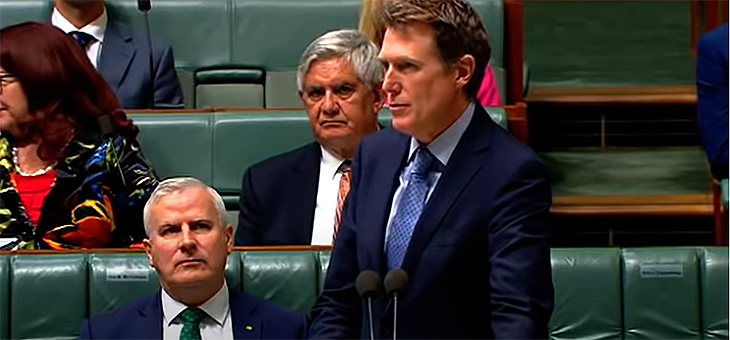Australia’s regulations governing the conduct of federal MPs are weak when compared to those of comparable nations, new research reveals.
Australia does not have an enforceable code of conduct governing the behaviour of MPs, putting it at odds with similar nations such as the UK, Canada and New Zealand.
And it’s not as if the ‘problem’ has not been highlighted. The federal parliament website, aph.gov.au, says that discussion about the introduction of a code of conduct covering senators and members dated back to 1975. Yes 1975!
The site says: “The issue of a code of conduct for parliamentarians was raised in the Joint Committee on Pecuniary Interests of Members of Parliament Report on Declaration of Interests tabled in both houses on 30 September 1975. The committee noted that the drafting of a code of conduct was beyond its terms of reference but ‘felt that a precise and meaningful code of conduct should exist’.”
The Centre for Public Integrity (CPI) paper found the only official method of regulating government ethics in Australia was through the ministerial standards. But these standards apply only to government ministers, and not MPs more broadly, and are more of a recommendation than hard rules. They are also only enforceable at the discretion of the prime minister and not by an independent body.
The results showed that Australia’s lack of enforceable standards meant its ethics system was considerably weaker than those in other countries and could leave the nation exposed to corruption.
Read: Aussies expect lying politicians to resign
CPI officials have sounded the alarm, saying Australia needs to implement official standards as a matter of urgency.
“Nurses, teachers and public servants are bound by codes of conduct,” CPI executive director Han Aulby told The Guardian.
“Why do we give our elected representatives a free pass to behave as they please?” he asked.
“The code must follow examples set by the UK and Canada. It must be independently enforced, combine broad principles and specific rules, and include policies on bullying and sexual misconduct.”
In the UK, MPs, lords, staff and special advisers are all subject to an official set of ethical guidelines, The Guardian says. As in Australia, the prime minister has full discretion when it comes to ministerial behaviour but rules applying to the House of Lords and House of Commons are upheld and enforced by an independent commission.
Read: Is the public service corrupt?
Canadian government ethics are governed by a set of laws that apply to ministers, MPs and parliamentary staff. The rules are applied independently by a conflict of interest and ethics commissioner who has the authority to start formal investigations as well as issue fines and compliance orders.
Across the ditch, our Kiwi cousins also have an official code of conduct covering ministerial staffers and a cabinet ethics manual for ministers. This is also enforced at the discretion of the prime minister.
The calls for official parliamentary standards are added to the existing calls for the federal government to establish a national anti-corruption commission.
The Coalition has proposed a model known now as the Commonwealth Integrity Commission (CIC). This proposal is still being considered by all stakeholders, but has already attracted criticism for focusing too much on criminal conduct at the expense of corrupt (but technically legal) behaviour.
Read: Are our governments too powerful?
“We already have people who investigate criminal offences,” University of Sydney academic Anne Twomey told The Guardian.
“They are known as police. We also have people who prosecute those offences.
“The reason for having an anti-corruption body is to do something different – to investigate behaviour which is corrupt, but does not necessarily amount to an offence.”
Would you like to see a policy that regulates the behaviour of politicians? Does Australia need a parliamentary code of conduct? Share your thoughts in the comments section below.
If you enjoy our content, don’t keep it to yourself. Share our free eNews with your friends and encourage them to sign up.

